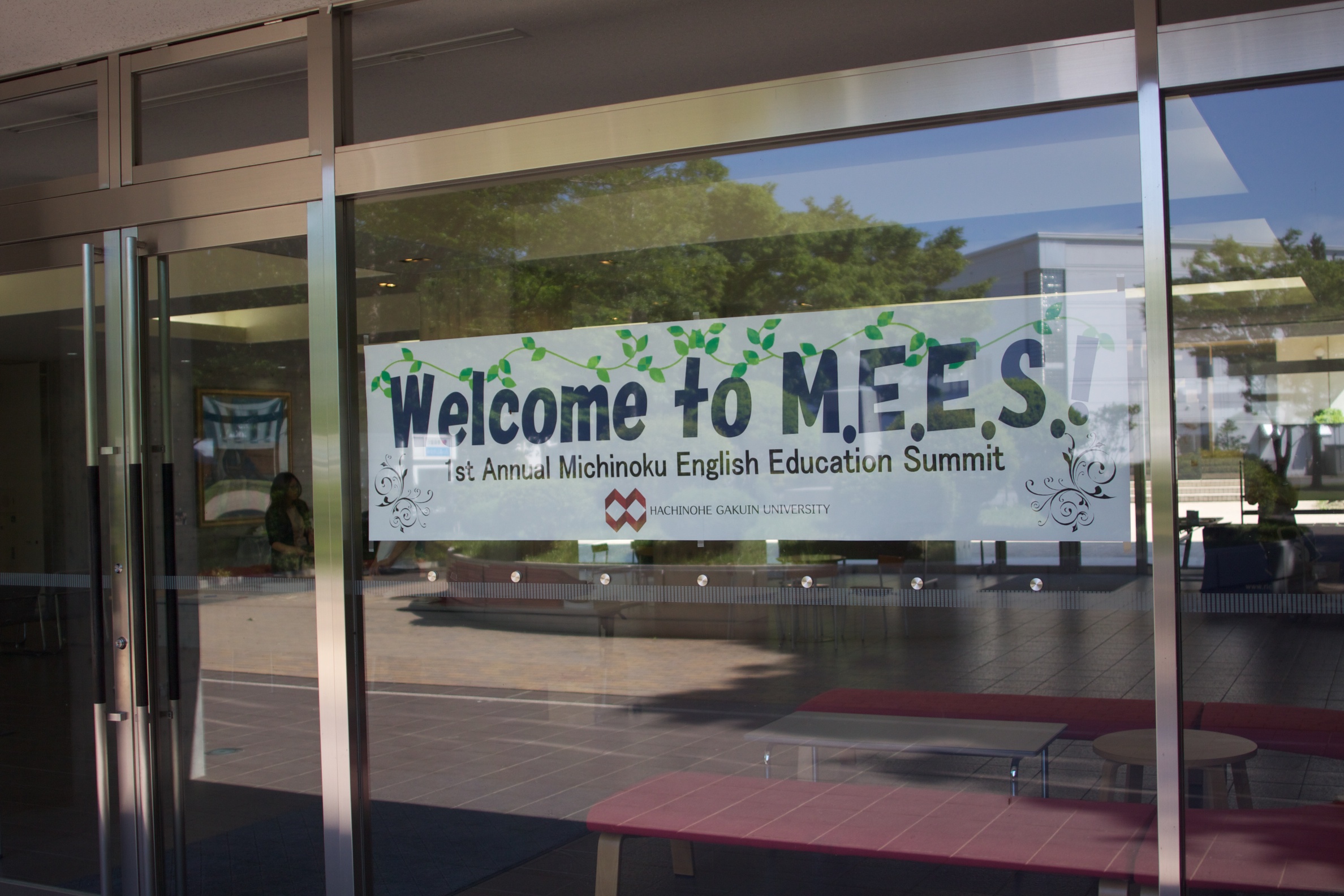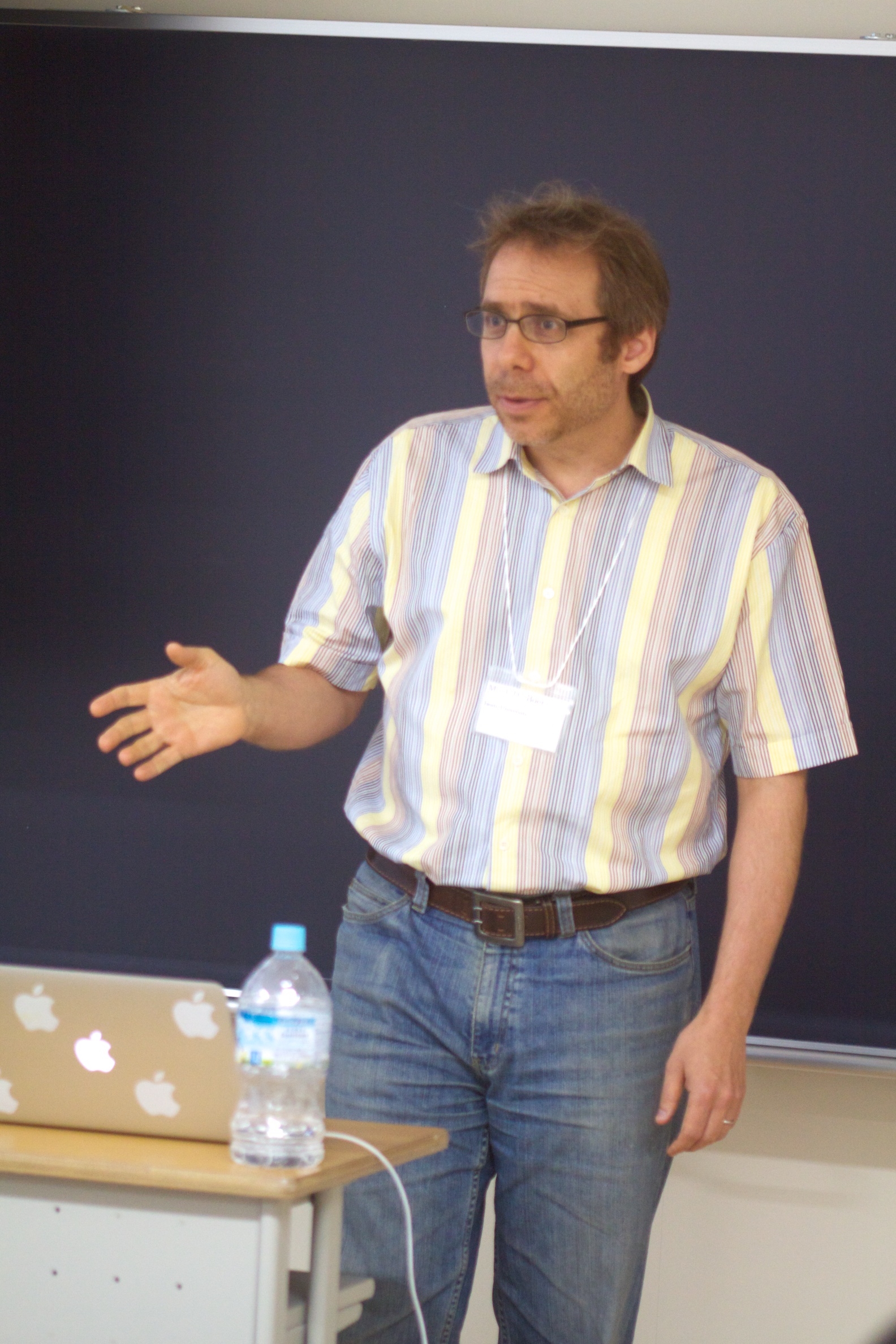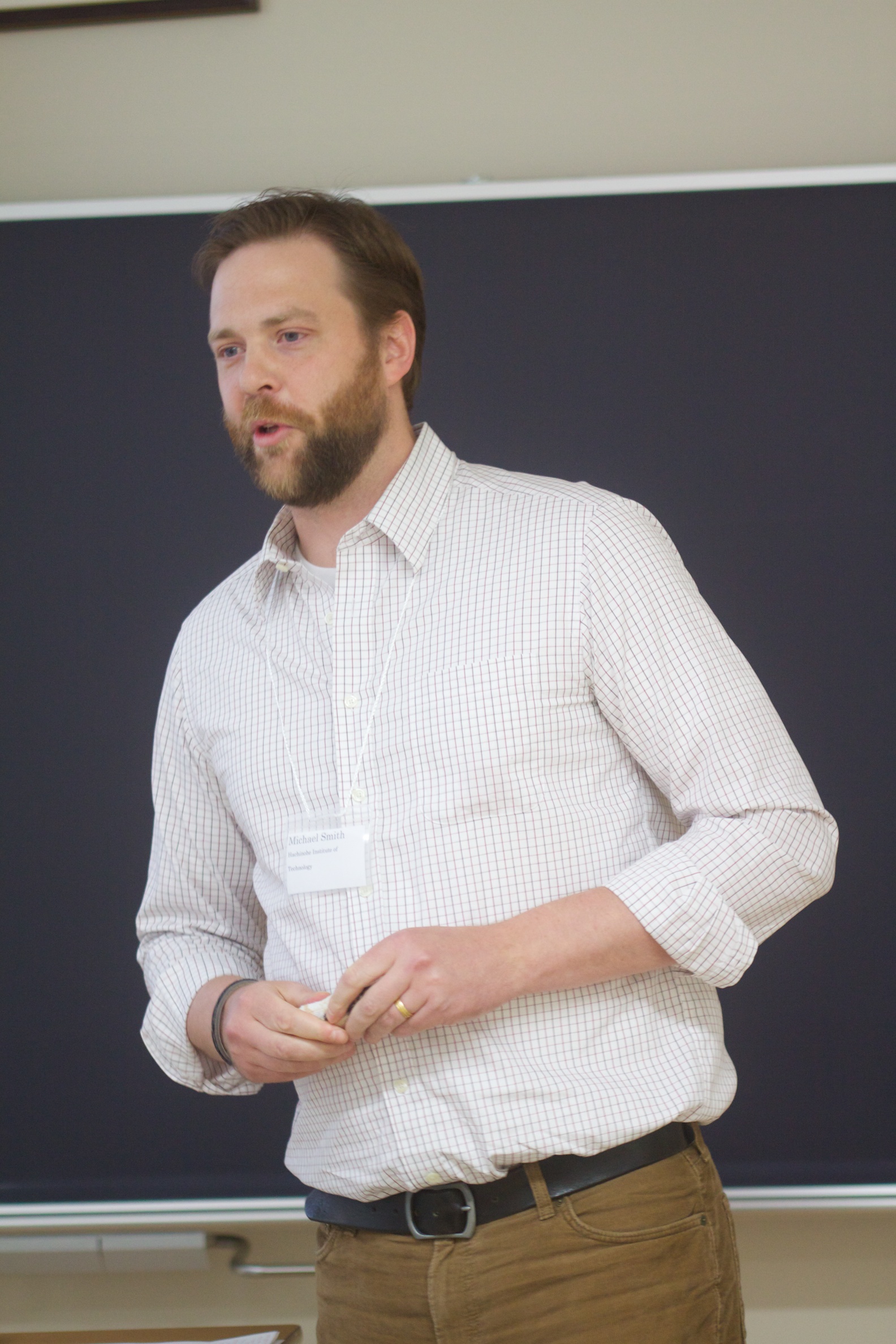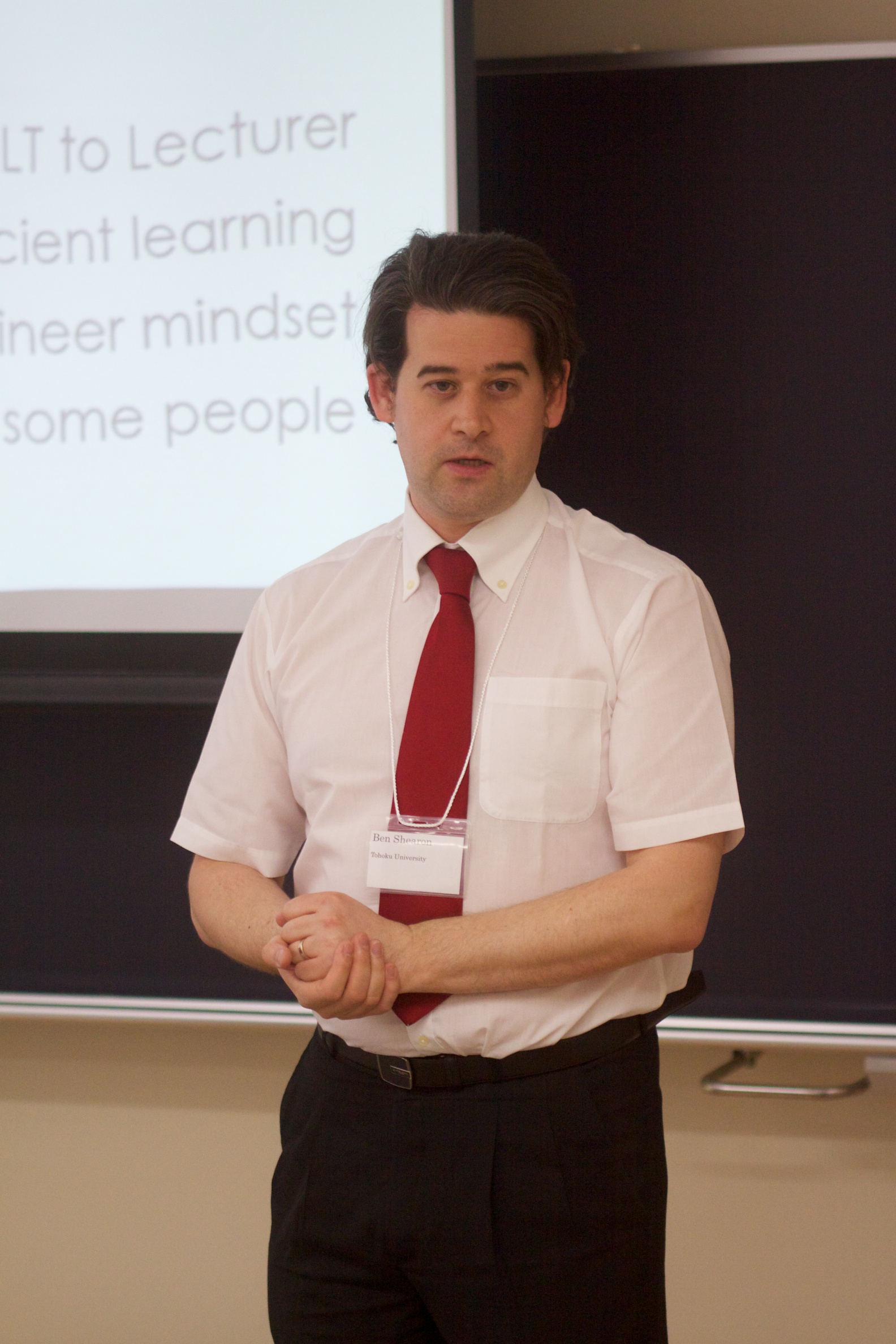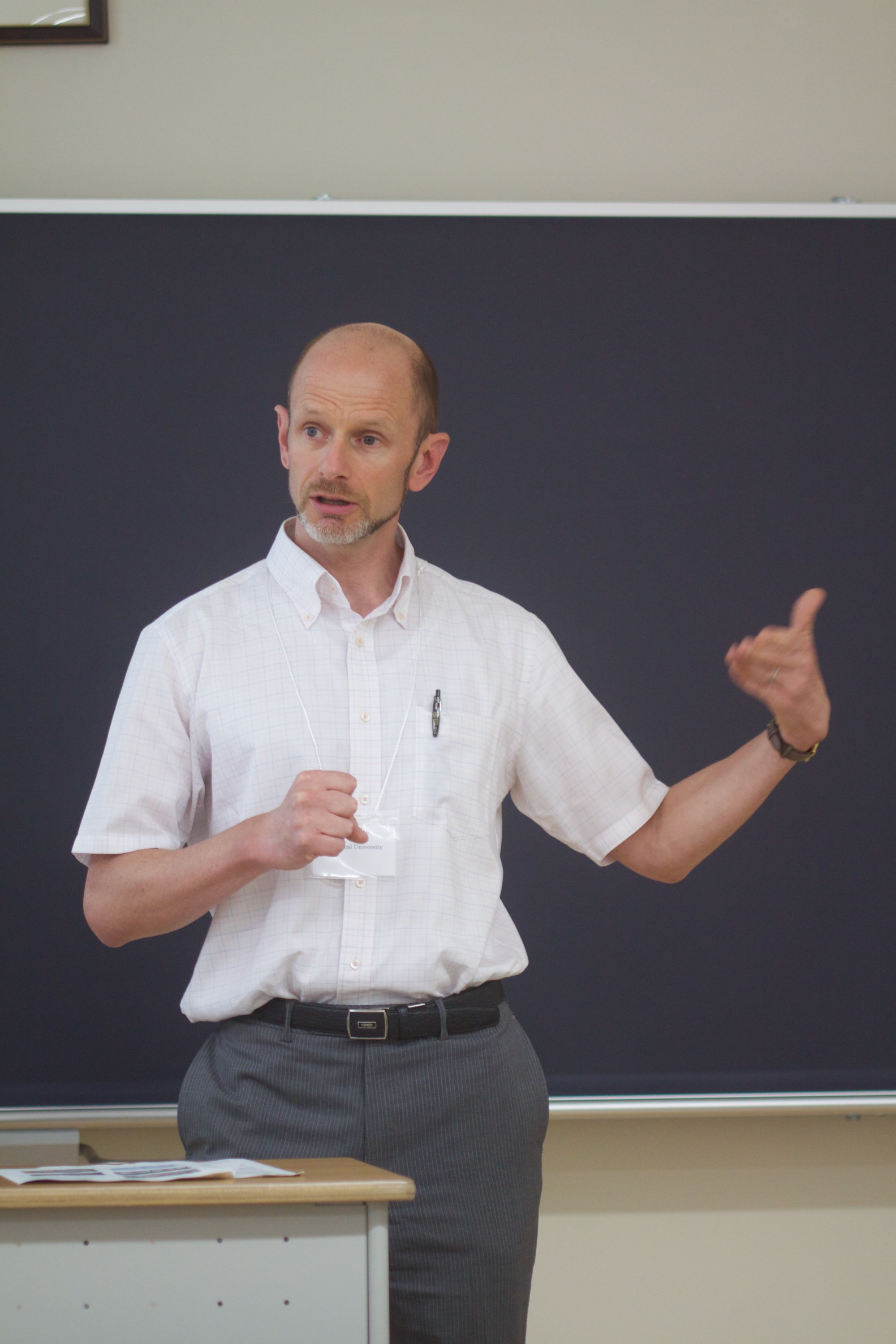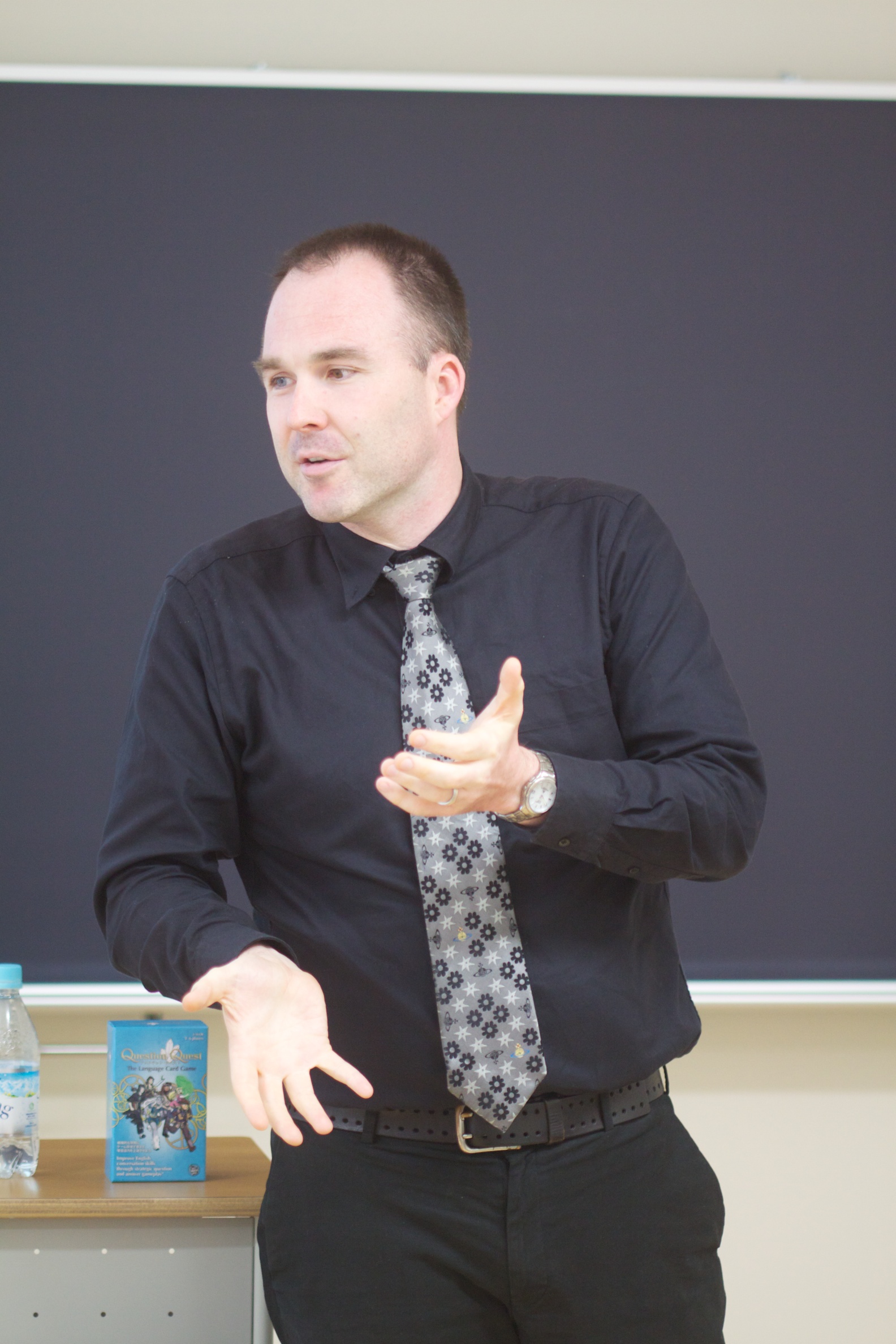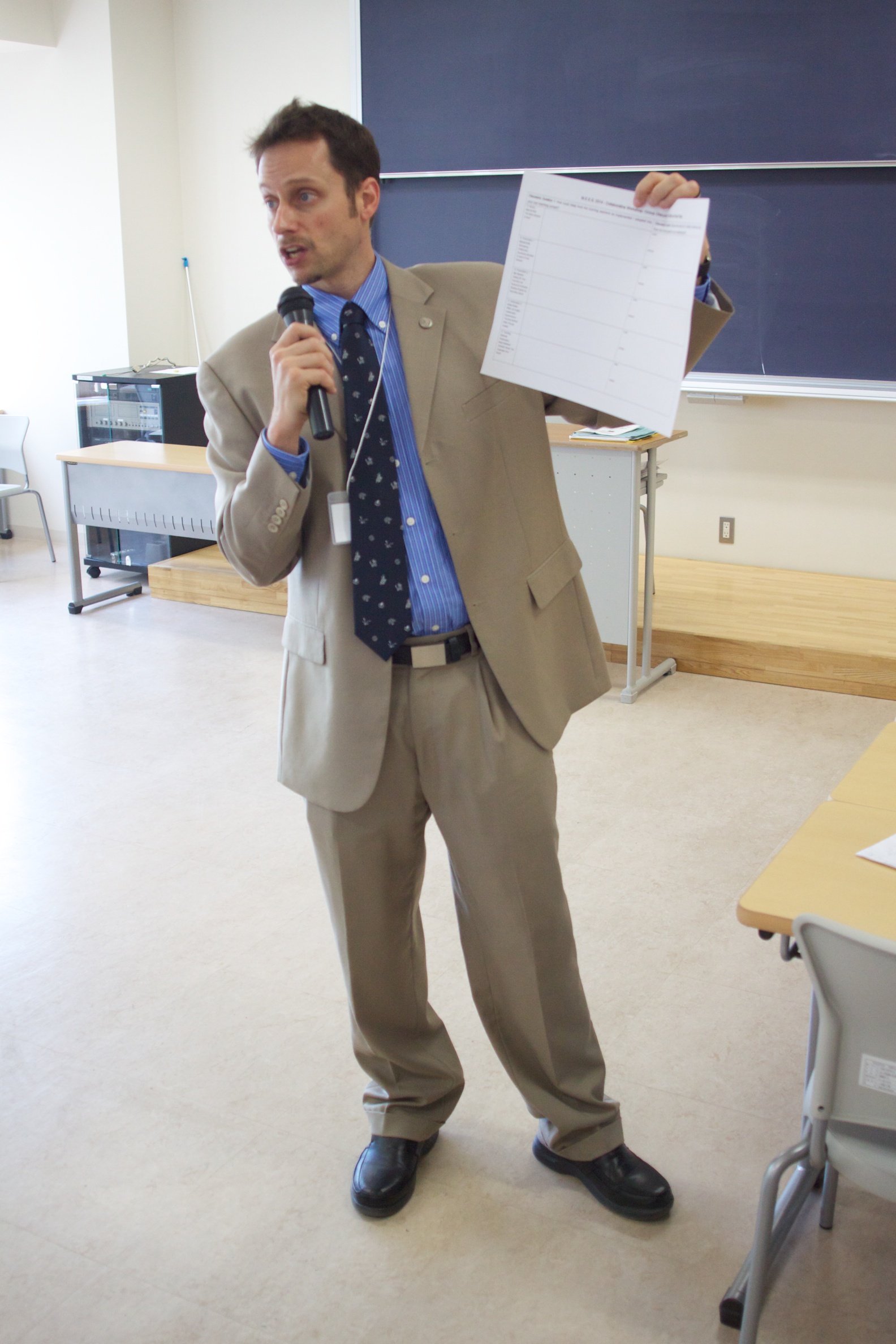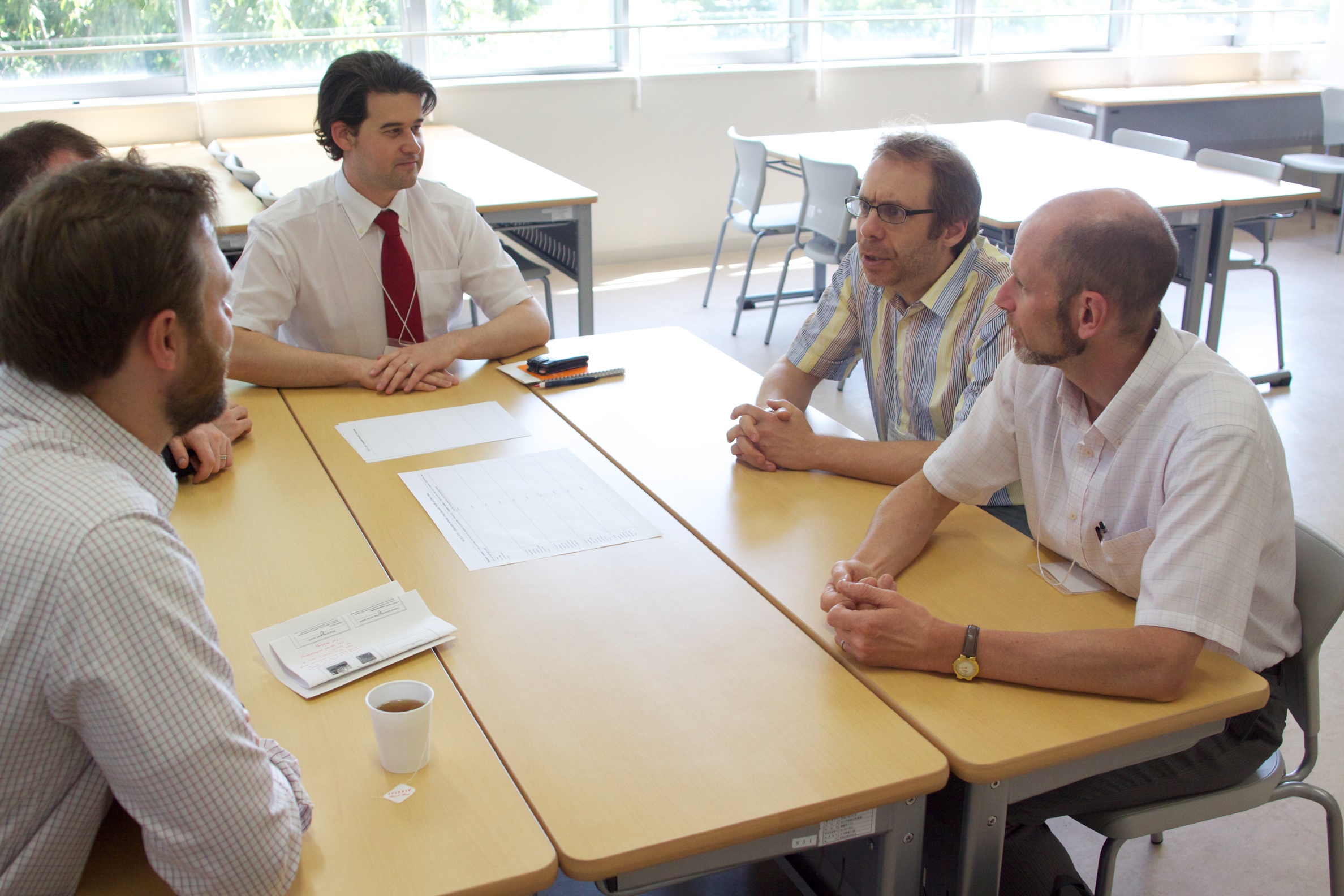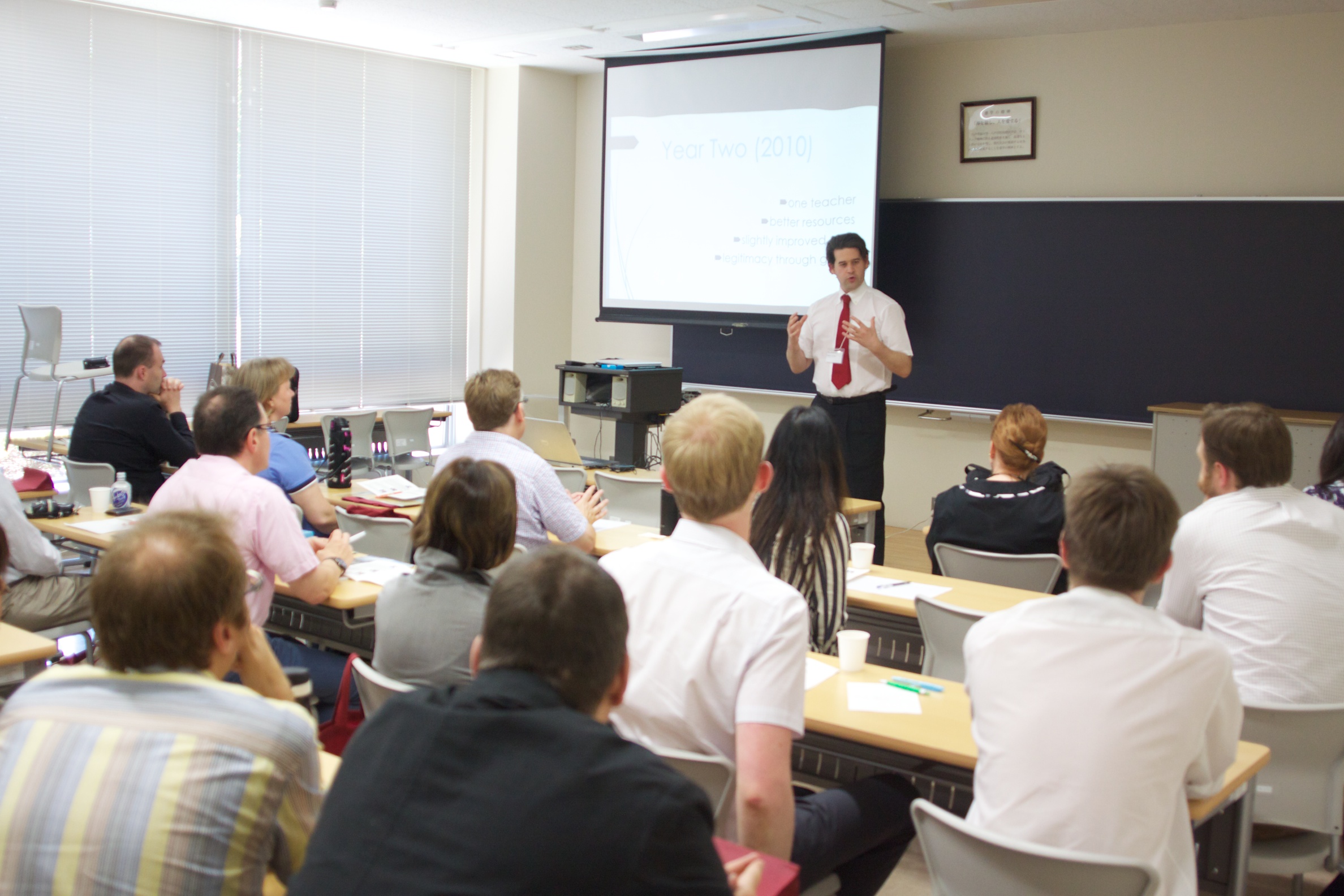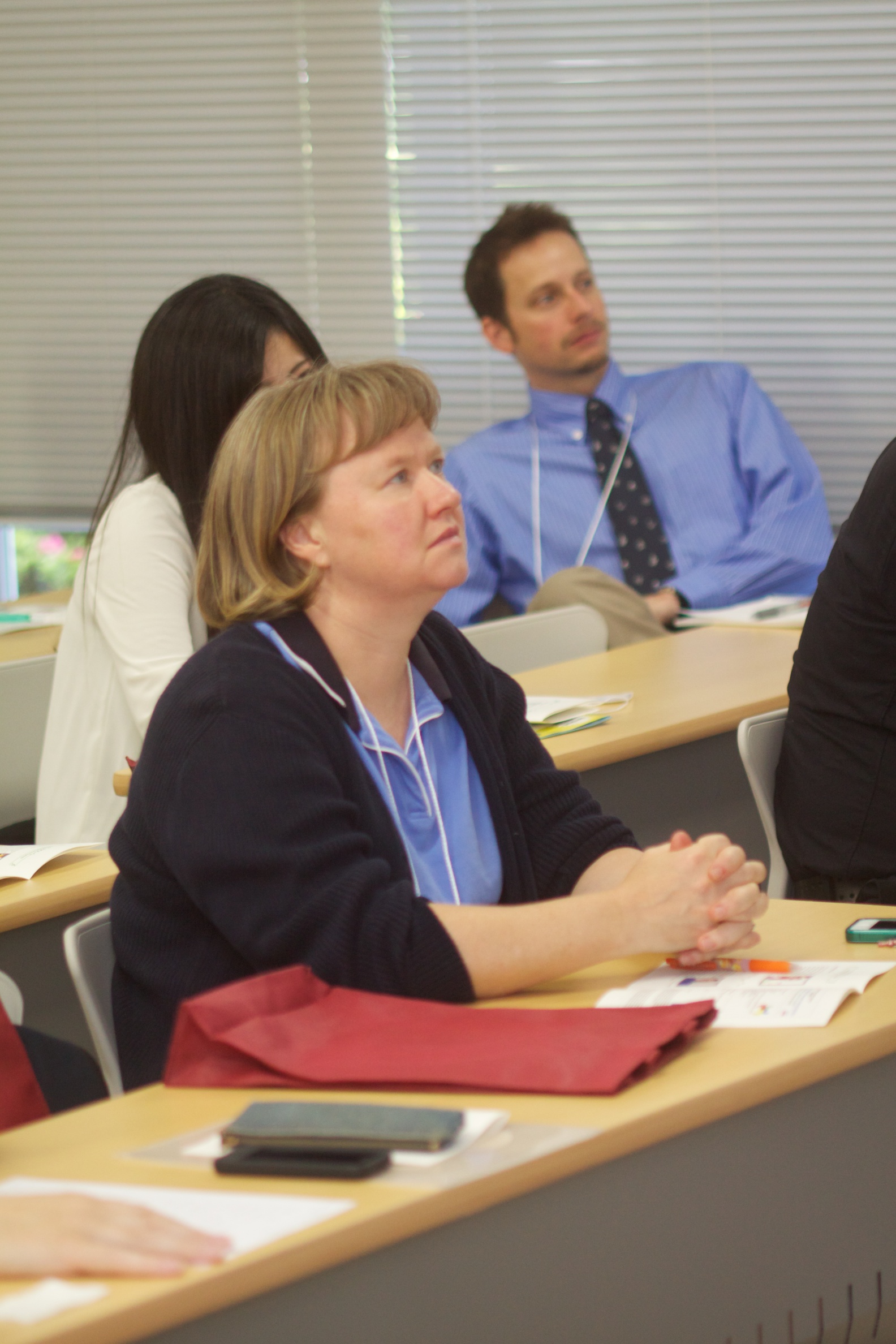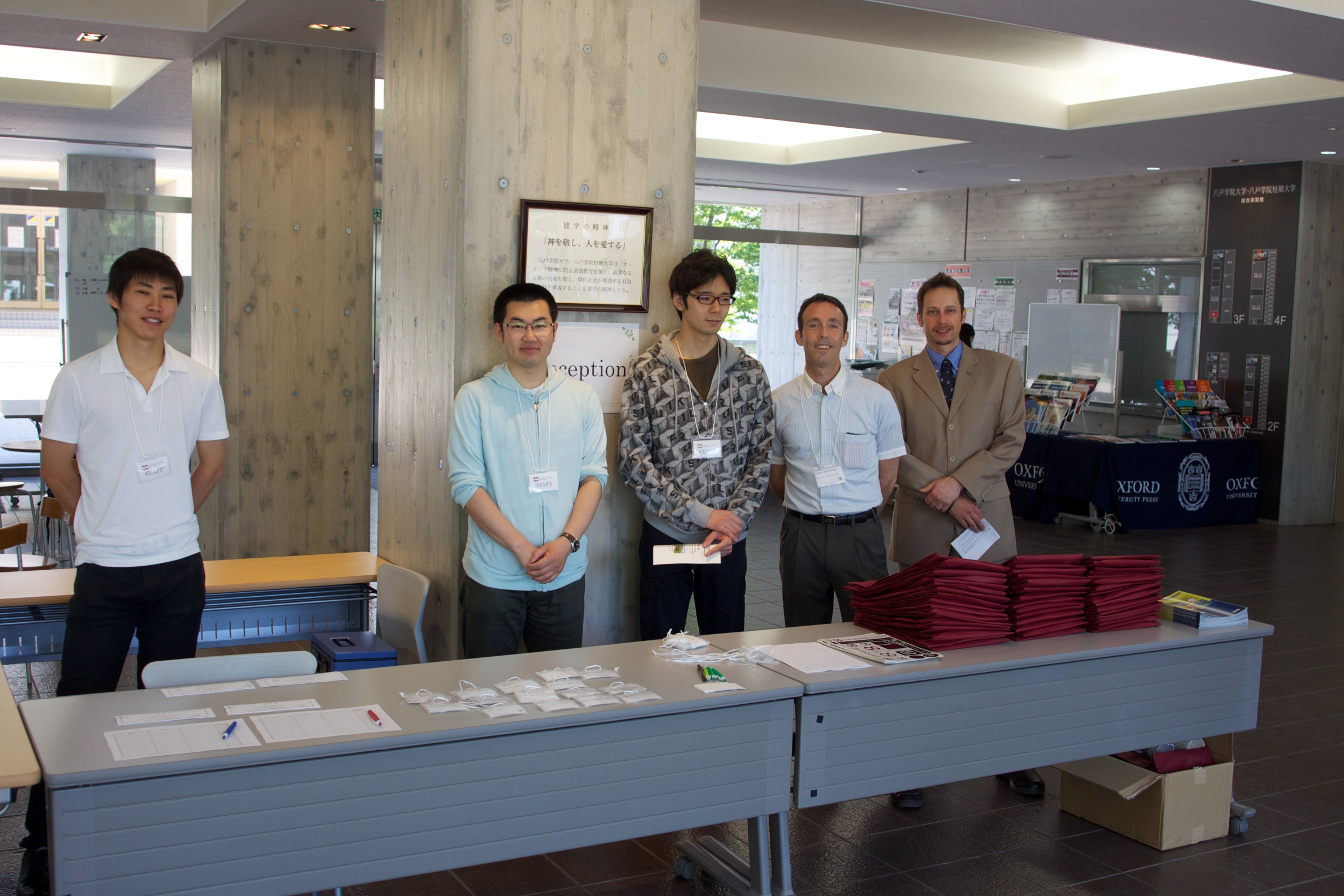 On Sunday, we had a visit from Emiko Kaneko from the University of Aizu, in Aizu Wakamatsu, Fukushima. She was in Morioka to give a talk about mechanical speaking practices such as repetition and drilling. Traditionally, when we think of these practices, we are reminded of endless sentence and vocabulary lessons at grade school. While there has been a push to more hands-on learning with foreign speakers, Emiko believes that there is still a need for more explicit learning techniques, and studies have shown that they are effective in improving the students language ability. She added that not all students have access to native language speakers or the ability to travel overseas.
On Sunday, we had a visit from Emiko Kaneko from the University of Aizu, in Aizu Wakamatsu, Fukushima. She was in Morioka to give a talk about mechanical speaking practices such as repetition and drilling. Traditionally, when we think of these practices, we are reminded of endless sentence and vocabulary lessons at grade school. While there has been a push to more hands-on learning with foreign speakers, Emiko believes that there is still a need for more explicit learning techniques, and studies have shown that they are effective in improving the students language ability. She added that not all students have access to native language speakers or the ability to travel overseas.
Emiko’s talk focused on how educators traditionally use mechanical speaking practices, and how we can adjust the way we use them when teaching lower level students who aren’t able to generate their own conversation patterns during class. Emiko added that generally, Japanese students can be shy around fellow students that are not in their peer group and it is difficult for them to even make small talk in Japanese. She lists a number of teacher directed techniques such as shadowing, read-and-look-up and mimicking, and shows how these techniques have had a positive impact on the language creation abilities in students.
Emiko wanted to emphasize that language acquisition is something that still requires a lot of time and patience. Thousands of hours are necessary to gain fluency. However, she is confident that mechanical speaking techniques are still some of our best tools for getting our students up to fluent levels. We want to thank Emiko for taking the time to come up and share her research with us.
Reported by Jason Hill
All photography ©2014 Jason Hill

